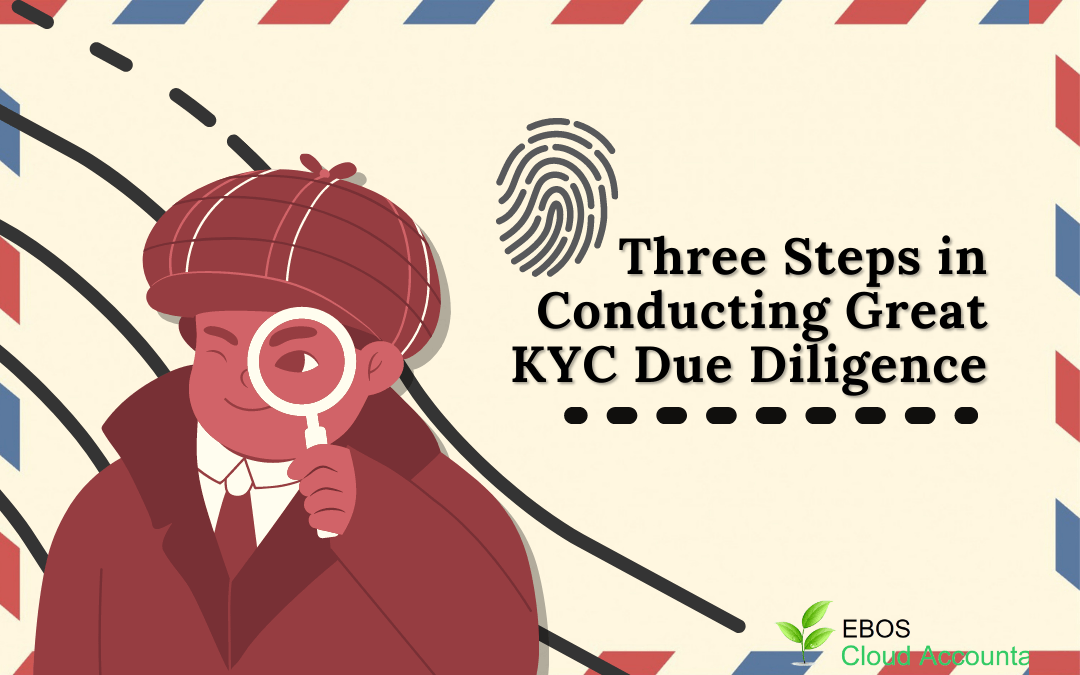KYC – or ‘Know Your Customer’ – is a common acronym for those familiar with running businesses. It is the process of researching your clients and customers and obtaining data or relevant information about them to ensure that their identities are verified and that they are suitable customers to maintain relationships with. This includes not just understanding their general profile, but also conducting checks to ensure, for instance, that they have never been involved or implicated in financial crimes. For the company, KYC services ensure that any transactions between the client and company do not violate any laws and that the company is not indirectly implicated in financial crimes.
‘Due diligence’ is in a similar vein and is a legally-binding process where a potential client or customer evaluates a company across various aspects, including legitimacy, profit and loss (PnL), background, assets, etc. to judge whether the relationship will go well. Many have frequently heard the phrase ‘do your due diligence’ potentially when it comes to investors and investing.
When combined, KYC due diligence is the strategic process of ensuring that any clients that a business interacts with has a good reputation, is not likely to do anything shady, and is not likely to drag the company into anything that may be troubling or illegal. It also ensures – in certain cases, such as mergers and acquisitions, or investments – that the company is able to give desired results based on its prior history.
This article discusses a good way for small and medium businesses (SMEs) to be able to conduct initial KYC due diligence of their own. For more in-depth work, our Intellinz platform can provide more comprehensive KYC services as well.
Identify Your Customer
This is important to ensure that your customer is who they say they are. The easiest way to do this is to obtain a copy of the ACRA profile from the Bizfile website, which details many of the company’s basic details, including the company name, industry, and activities as well as their shareholding and shareholders, and things like paid-up capitals. You can also request copies of other necessary documents directly from the client to verify their identity. An example of this is seen when an individual in Singapore moves addresses; when you inform your utilities provider of this change, you often have to provide things like proof of purchase, rental agreement, or even other bills to prove that you are staying there.
During this process, not only do you want to ascertain your client’s identity and verify it, but you also want to have an understanding of their business activities. While doing so, you should assess the potential client on risk and define their risk level as well – the criteria for this will vary from company to company. For instance, a finance company may want to verify that their client is not involved in money laundering.
Keep Track of Your Customer
An ongoing process should be in place to keep track of your client’s details, as existing customers have the potential to transition to different risk categories over time. This is especially important for clients who have the potential to shift into a riskier category; each business should develop its own bottom lines of whether they accept specific entities or individuals as clients. Once certain customers have passed the line, they should be rejected whether they are new or old customers. What this line is may vary from company to company.
In Singapore, these records must comply with the Personal Data Protection Act (PDPA) as well. Every business should already have a PDPA Office assigned, in charge of ensuring that all data collection and processing follows the regulations.
Adjust Your Processes
Inevitably, most things become outdated. Ensuring that you have a regular review in place both internally and externally can assist in optimising your processes as much as possible. The period of review is usually annual, although some may do it more frequently and others may do it less.
Your clients should be a part of the process review and adjustment as well, and they can provide feedback on crucial aspects of it. For many businesses, KYC may extend the onboarding time and/or experience of clients, and so this feedback is essential in being able to balance out KYC due diligence needs with client experiences.
At the same time, your internal teams should provide feedback on how the KYC due diligence process feeds into the remainder of their operations. Suggestions on how to better optimise, or new ideas that may make things more efficient, should help ensure that things run smoothly.
In summary
KYC due diligence is an important part of any client acquisition process, and as such is important for any company. While we recommend the use of our Intellinz platform to ensure that the process is streamlined, many companies can get started using the three simple steps above to gauge whether their clients are suitable for them.
For more questions, please feel free to contact us!







